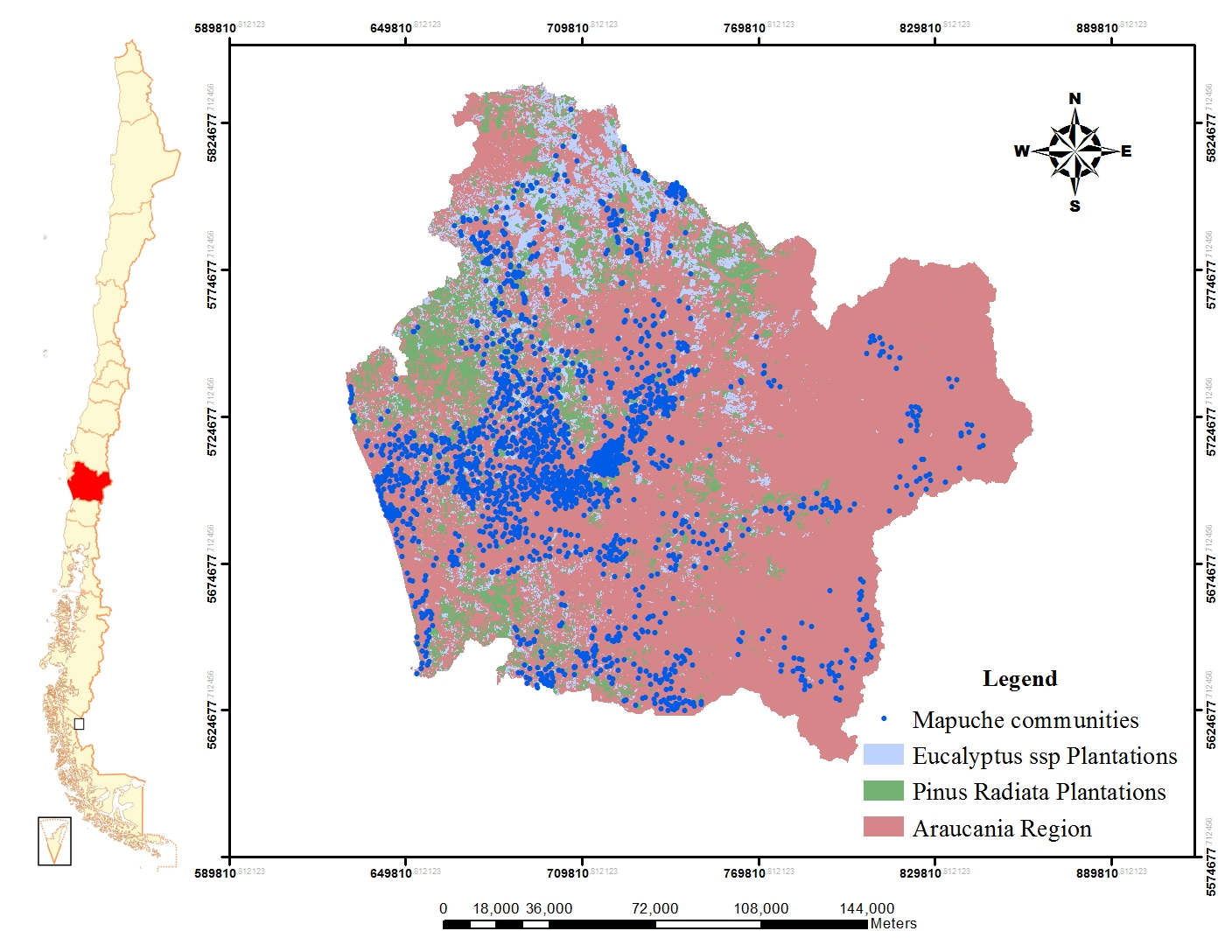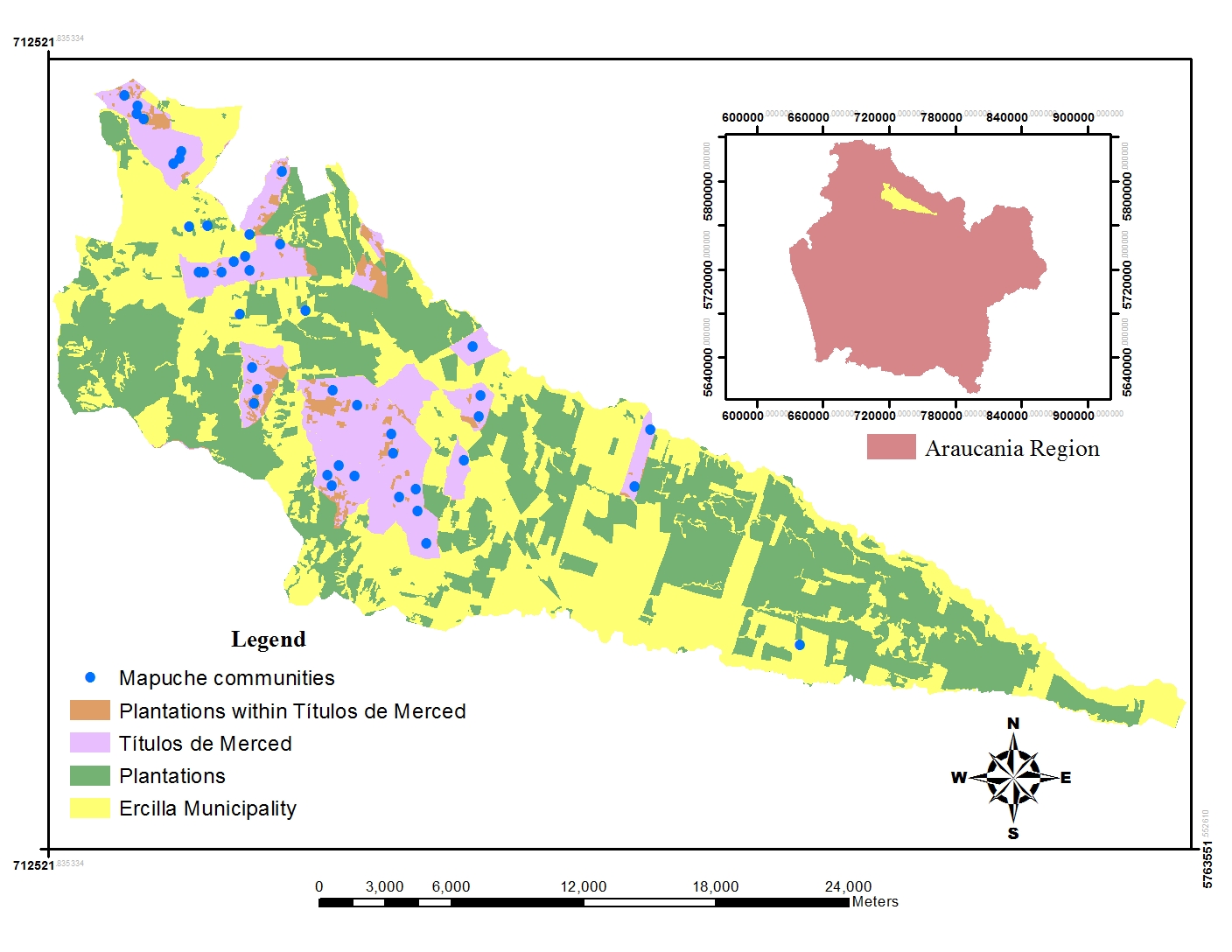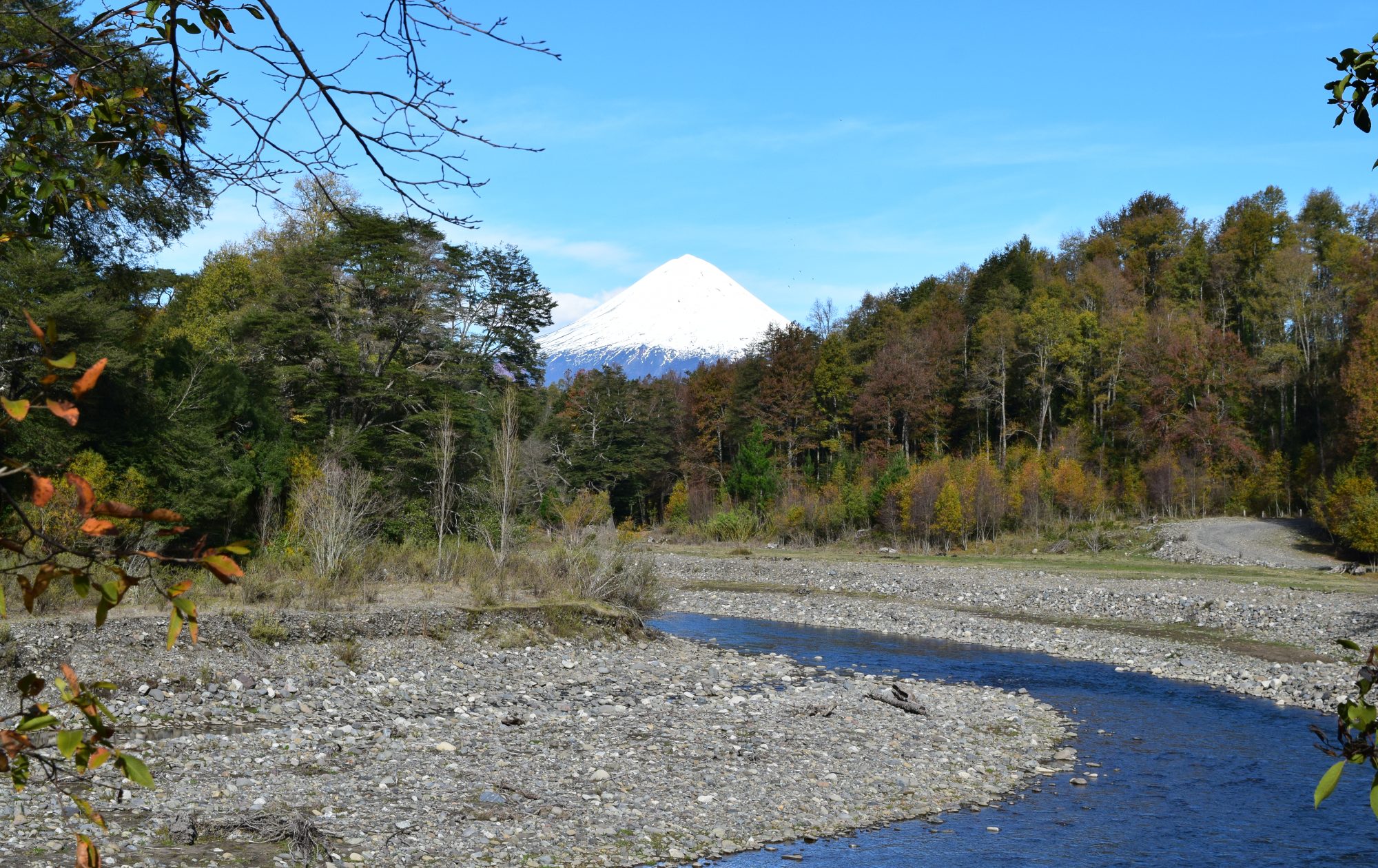The Mapuche people are concentrated in the south-central regions of Argentina and Chile, locus of their ancestral territories. According to the latest Chilean census, 1,508,722 Chileans are Mapuche, which corresponds to roughly 9 percent of the national population (DiGiminiani 2013). More than half of the Mapuche population (59.1%) live in Regions that correspond to their land of traditional occupation (e.g. Araucania, Bío-Bío, Los Lagos, and Los Rios Regions), reflecting the inextricable link between Mapuche people and the land (CEPAL 2012).
In the Araucania Region, the Mapuche people represent almost a quarter of the regional population (23.5%). According to Du Monceau (2008), this region has experienced significant land-use changes over the past few decades. In particular, the native forests in this area have been subject to selective logging, forest fires, and the introduction of plantations (See map bellow).

As Du Monceau (2008) states, this region’s native forests are disappearing and being degraded at an alarming rate. In parallel, ITPs are expanding dramatically provoking severe environmental impacts (e.g. droughts, forest fires, floods, soil erosion, etc.). Being subject to these impacts, as well as many others, some Mapuche communities of the Araucania Region have become emblematic communities (e.g. Temucuicui, Mapuche Community located in the Ercilla Municipality, Province of Malleco, See map bellow), not only because of its struggle for land access, but also because of the brutal repression from the Chilean state (CEPAL 2012). In the following map, it is possible to see how plantations have been established even within the Mapuche Títulos de Merced, an area that represents about 965 ha.

The municipality of Ercilla is a particular case, because almost half of its area is covered with ITPs (40%). The expansion of the forest industry in this municipality is the result of a complex situation, involving economic incentives offered by the State and false labor expectations, and the promotion by forest companies of new income sources and improvements to the local infrastructure as a means to counteract the impoverishment of Mapuche communities (CEPAL 2012).
Cited work
CEPAL, 2012. Desigualdades territoriales y exclusión social del pueblo mapuche en Chile: Situación en la comuna de Ercilla, Santiago, Chile.
DiGiminiani, P., 2013. The contested rewe: sacred sites , misunderstandings, and ontological pluralism in Mapuche land negotiations. Journal of the Royal Anthropological Institute, 19, pp.527–544.
DuMonceau, M.I., 2008. The political ecology of indigenous movements and tree plantations in chile. The University of British Columbia.
